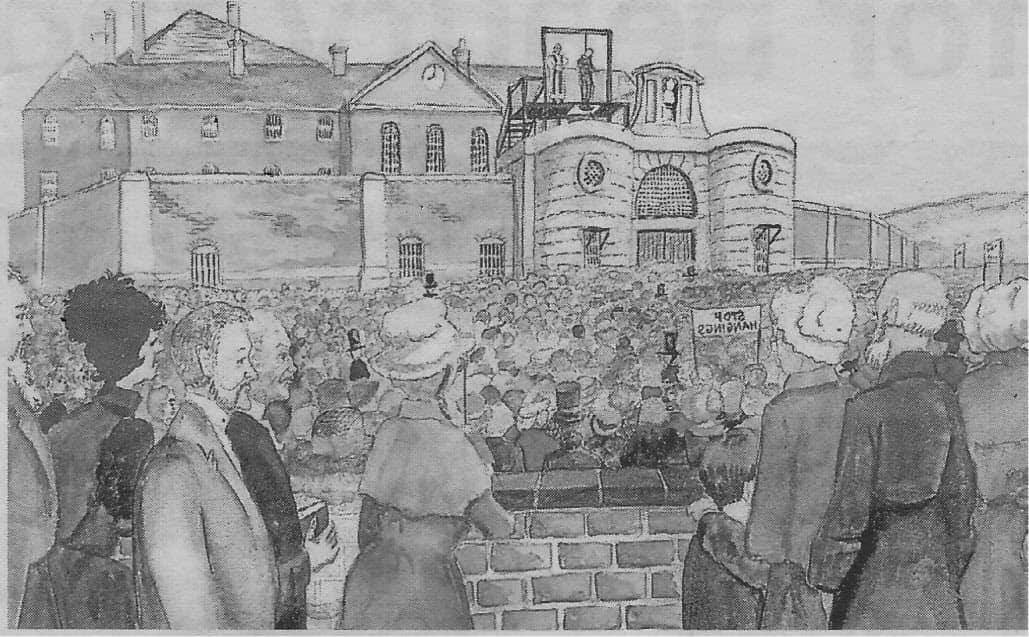
On December 30, 1861, John Thompson of Sutton Coldfield was hanged for murder in front of the county gaol in Warwick.
By this time only murderers were hanged. Thompson was the only inhabitant of Sutton Coldfield to be executed for murder in the 19th century.
He was a wire drawer working in Aston and living in Sutton with Ann Walker, a married woman who had been estranged from her husband for several years and who he referred to as his housekeeper, and his five children.
The killing of Walker took place at a lodging house in Tanter Street in Birmingham.
Thompson and Walker had visited a fair in the town and were staying overnight at the lodging house. The next day they visited a number of pubs, at one of which Walker encountered a man with whom she had formerly co-habited. Walker returned to the lodging house and was soon followed by Thompson. Both were drunk.
An argument ensued in their room and Thompson cut Walker's throat. At the trial, Thompson's barrister, hastily pressed into service by the judge, urged the jury to. deal with him as they would a man of higher status.
The judge, however, made clear this was a case of murder, and the jury, in a very short time, returned a guilty verdict. An appeal to the Home Secretary for clemency was rejected. In his written confession, Thompson accused several witnesses who addressed the court of perjury but accepted his guilt and expressed his regret.
"I am sorry I did it for I was very fond of her and she was a good clean woman in the house," he wrote. Thompson was executed alongside another man convicted of murdering his wife.
They had both attended a service in the chapel before being pinioned and escorted to the scaffold. The executioner put on the caps, shook their hands and pulled the bolt. Their bodies were buried within the precincts of the gaol. It was tragic story of jealousy and rage, greatly aggravated by alcohol.
Public hangings for murder during these years were not an unusual sight. Attempts were made repeatedly by radical MPs to end capital punishment altogether, always unsuccessfully. In 1868 public hangings were brought to an end. The last man to be publicly hanged in England was an Irish Fenian Michael Barrett. Thereafter hangings took place behind prison walls. This was seen as advancing civilised behaviour. Executions continued to take plate in prisons for almost another century, finally ending in 1964.
Glimpses into Sutton's Past Part I 1800-1850 and Part II 1851-1886 by Associate Professor Stephen Roberts can be ordered from Amazon, priced at £4.99 and £5.99.
Associate Professor
Stephen Roberts